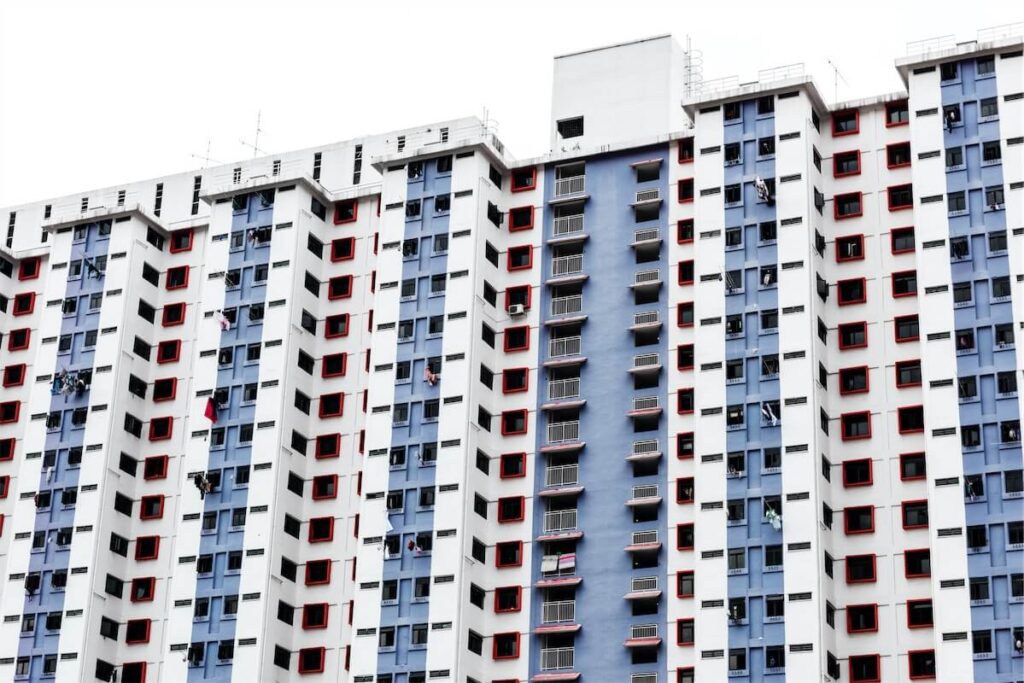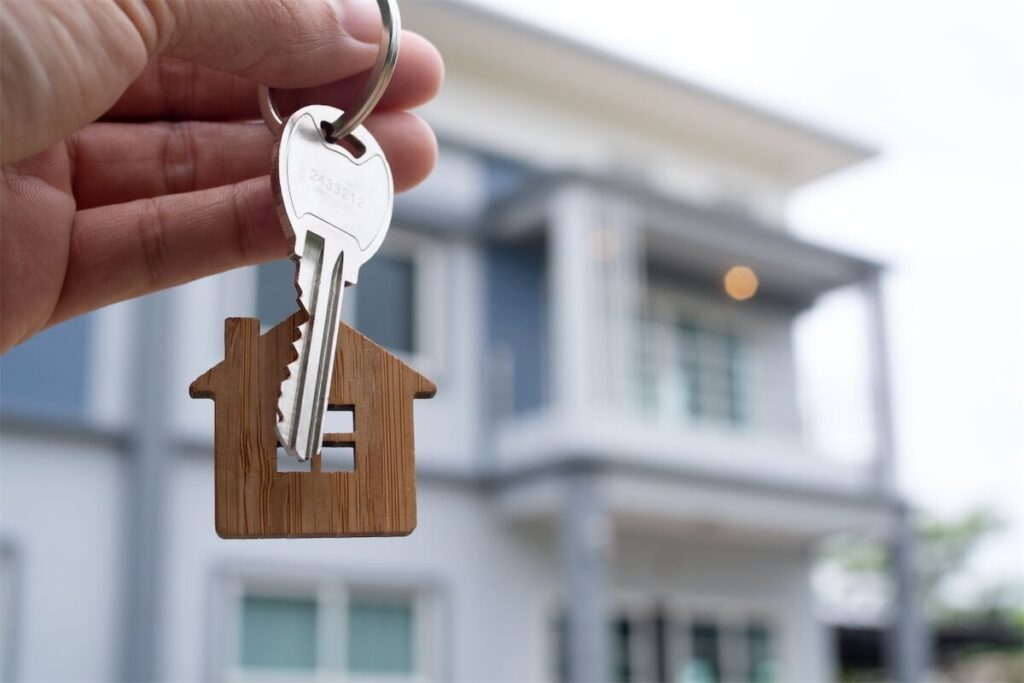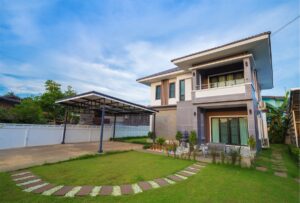Getting a home loan in Singapore is a massive commitment. On the one hand, you’ll be buying yourself a place that you can call your own. On the other hand, you’re looking at what might be the biggest purchase of your life, and a purchase that most people take decades on the home loan to pay off, too.
So if you’re nervous or feel overwhelmed from all the browsing, we understand. It can get tiring to keep track of the troves of information, with various websites from which you have to make comparisons.
In this article, we take a look at home loans for different types of properties in Singapore, and help you understand a little more about home loans in Singapore.
Home loans in Singapore for HDBs

Fixed-rate home loan in Singapore for HDBs
When you’re looking for a bank loan, fixed-rate home loans offer stability and security. Interest rates for fixed-rate home loans will remain fixed throughout the fixed term period, no matter how the housing market might fluctuate during the period.
Whether your lock-in period is 2 or 3 years, fixed-rate home loans give you the ability to gauge your financial status in the near future. That’s precisely why they are a trendy choice during times of economic struggle.
For the security that they offer, fixed-rate loans may seek a higher premium and may be more expensive than floating rates by about 0.3% in annual interest.
Fixed-rate mortgage loans in Singapore might be a good choice for you if general interest rates are high, you pay monthly cash repayments, and you don’t mind paying a little extra for financial stability.
Home loan floating rate in Singapore for HDBs
You might’ve read the acronyms “SIBOR” and “SORA” while on your hunt for a bank loan for your new home. These refer to floating rates, and they vary and move over time.
Floating rates aren’t for everyone, though.
If you’re financially secure and can weather potential market volatility, then you might be able to take a loan with a floating rate. The last thing you want is to get caught in an interest uptrend and end up having to fork out a lot more.
On the plus side, making all the right moves could mean you’ll end up spending less than you would on an HDB loan. You’ll also want to take the lock-in period into consideration, which is the amount of time you have to stick to floating rates before being able to refinance your loan.
Learn more about SIBOR, SORA, and other types of mortgage rates here.
Find out more about the home loan acronyms you need to know here.
Home loans in Singapore for Private Homes

While HDB units may account for many homes in Singapore, private housing makes up about 20% of homes in Singapore. Private homes also have a large pool of foreigners and permanent resident purchasers, as foreigners aren’t entitled to many of the grants and benefits that a Singapore citizen gets from the government.
Read about the 4 key advantages of getting an upcoming EC in Singapore here.
When opting for a home loan in Singapore for your private home, note that floating rates with board rates are controlled and determined entirely by banks.
This means that the loan package may not be as transparent as, say, interbank offer rates. Singapore Interbank Offer Rates, also known as SIBOR (mentioned earlier), is more closely tied to the US Federal Reserve movements.
This means that changes are significantly more transparent. In most cases, banks will give you a 30-day notice before benchmark rates change, allowing you to adjust the CPF usage for the monthly repayment .
However, SIBOR will soon be replaced by SORA, which is based on actual interbank transitions. Read more about this here.
Home loan refinancing rates in Singapore

Choosing a loan that you wish you hadn’t isn’t the end-all be-all. When the lock-in period for your loan is over, it means that you’re finally able to look into the option of refinancing!
If you’re on a fixed loan, the end of your lock-in period also means that you’re now subject to floating interest rates.
With that said, it doesn’t mean that you have to wait until your lock-in period is over to begin refinancing. Refinancing contracts are valid for 6 months after they are newly signed.
During refinancing, you can share with the banks the current interest rates you’re paying. Banks will then quote you a lower rate than what you’re currently paying to win new business from you or maintain your current business with them.
This, in turn, will help you reduce the amount that you have to fork out for monthly instalments.
Home loan trends indicate that home loan packages typically raise their interest rates after 3 years, making it the best time to see if you can get a lower interest rate. Typically, people tend to refinance their mortgage loan in Singapore every 2 to 4 years.
READ: Misconceptions of home loan refinancing
Other things to take into consideration when refinancing your home loan in Singapore
While the calculation of savings from refinancing might seem simple enough, you’ll also want to keep some other factors in mind.
Since refinancing contracts are typically valid for 6 months, you’ll want to begin looking for a home loan package before the lock-in period for your current loan is over.
Keep in mind that you’ll also need to give your current loan provider a 3-month notice before changing your home loan package.
Given 2 to 3 weeks for sourcing a new home loan in Singapore, the best time for you to start processing your refinance would be 4 months in advance.
This will ensure everything is in order and that you’re ready to jump to your new package just as your lock-in period ends.
You should also remember that there will be other costs involved with refinancing. This includes the lock-in period of your new home loan, which means you’ll need to stick with your new interest rates for a while.
There are also legal fees involved when you refinance your loan, which can cost you between S$2,000 to S$3,000, depending on the type of property that you have!
However, depending on the situation and the loan amount, banks may absorb the legal fees involved.
Getting a bigger home loan in Singapore
If you’re looking to buy a home with a steeper price tag, you’re likely going to need a bigger mortgage loan.
Loans are used to finance expensive homes can run into millions of dollars. Because of the increased housing costs and higher monthly commitment costs, you’ll need a bigger home loan than what the average homebuyer in Singapore might need.
Home loans in this category are often at least S$1,000,000. So it’s best to make sure that you get the best interest rates in the market. This can make a sizable difference to how much you’ll end up paying every month, let alone in the distant future.
Home loans in Singapore for building under construction

The options for mortgage loans in Singapore are so vast and expansive that they’re even available for houses that are still under construction! These home loans work a little differently.
Sometimes, these home loans charge meagre interest rates during the first 2-3 years of the loan. This is typically when the property is still under construction. However, interest rates might pick up later on and become more expensive than average home loans. There is no fixed rate home loan for BUC properties.
In some instances, these loans may not have a lock-in period, offering you the option of getting a lower interest rate once the construction of the property has been completed.
In all, it’s very advantageous to be able to take a loan for properties still under construction as it allows you to make an informed commitment to your purchase.
So… how should you choose?

Alt-text: Young couple and a mortgage broker in Singapore looking at the options for home loans for their new HDB BTO
Most soon-to-be homeowners pick their home loan based on interest rates. This is entirely logical, given that interest rates make up a substantial proportion of the cost of home loans. As the years add up, low-interest rates could mean you’re saving tens of thousands of dollars.
But apart from interest rates, you can also peg your choice to flexibility. When it comes to home loans, you’ll be thankful for the luxury of being able to refinance your loan every 2 to 4 years.
This is also a trend with people in Singapore taking home loans, likely because interest rates have declined over the last few years, and many also wanted to obtain better rates.
But with the increase in flexibility, you’ll still have to make sure you’re keeping your costs in check with a watchful eye on legal fees, valuation fees, lock-in periods, and fire insurance premiums. These added costs can reduce the amount that you’ll be saving on interest rates.
In cases like these, it’s always helpful to find banks that offer subsidies for legal fees and valuation fees, which can add up to be substantial.
In general, you’ll want to keep a look out for the following costs to reap maximum savings from low-interest rates and refinancing:
| Fee involved with refinancing | Costs of fee (estimated) |
|---|---|
| Legal Fee | S$2,000 onwards |
| Cancellation Fee | 1.5% |
| Valuation Fee | S$500-$1,000 |
| Fire Insurance Fee | S$120 per year |
| Partial/Full Redemption Fee | 1.5% |
| Pricing Reset Date Penalty | 0.5%-1.5% of amount prepaid |
The ever-changing landscape of a home loan in Singapore
As SORA packages replace SIBOR-pegged home loans, and as COVID-19 and other global events continue to shape and change property prices, how can you stay on top of trends?
Keeping track of all the latest loan packages in Singapore is a lot for one person to handle. Instead, you might want to consider approaching taking a home loan in Singapore through a mortgage broker.
Mortgage brokers know mortgage and loan financing like the back of their hands. Save yourself the stress, time, and hassle of comparing home loans. By working with a mortgage broker instead, you’ll be recommended a suitable home loan in no time!
And if you’re well-versed with home loans, mortgage brokers can help you stay on top of trends and ever-evolving interest rates. When a mortgage broker enables you to make the right choice, you’ll reap plenty in the form of savings.

Over here at FinanceGuru, we can’t wait to start walking through your life’s major milestones with you.
But if there’s one essential thing we’d like to help you make sure of, it’s that you’re well-prepared for all your financial undertakings. Contact us for a non-obligatory loan assessment today.







